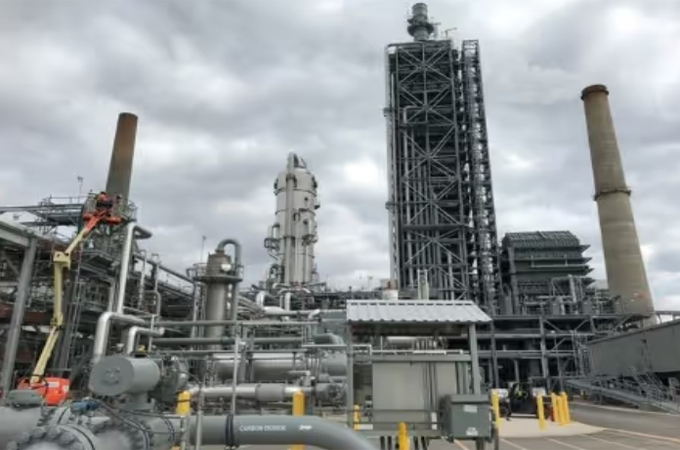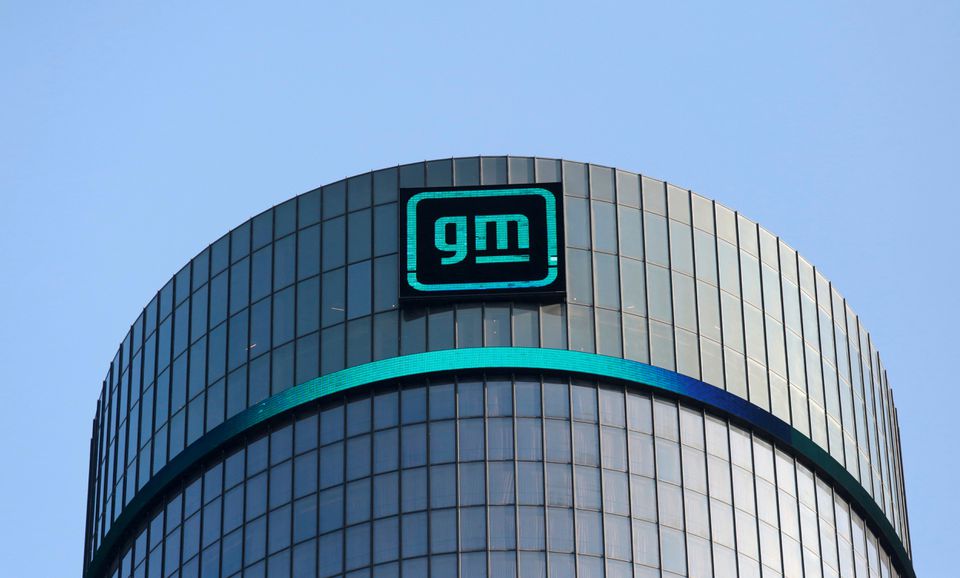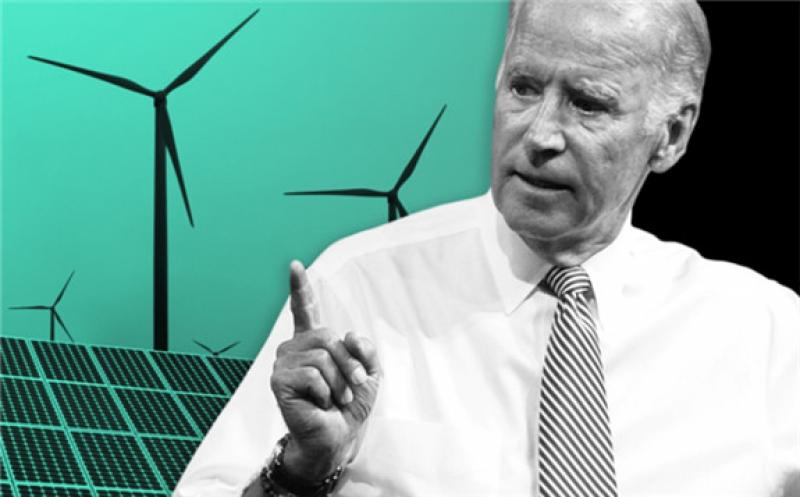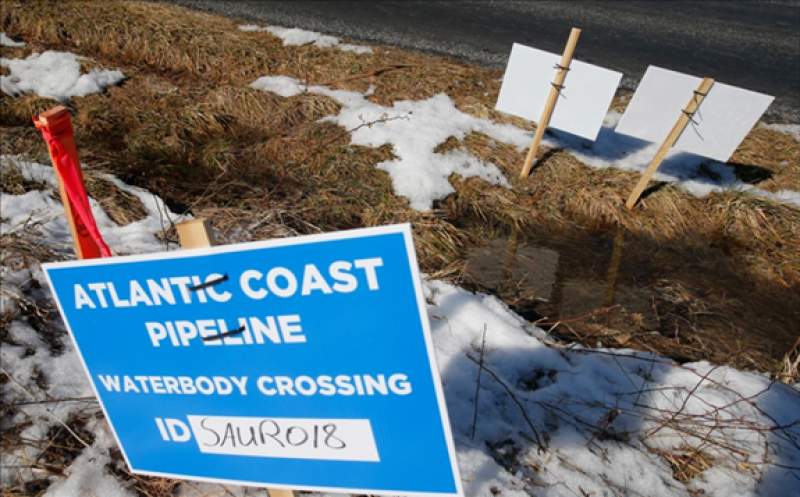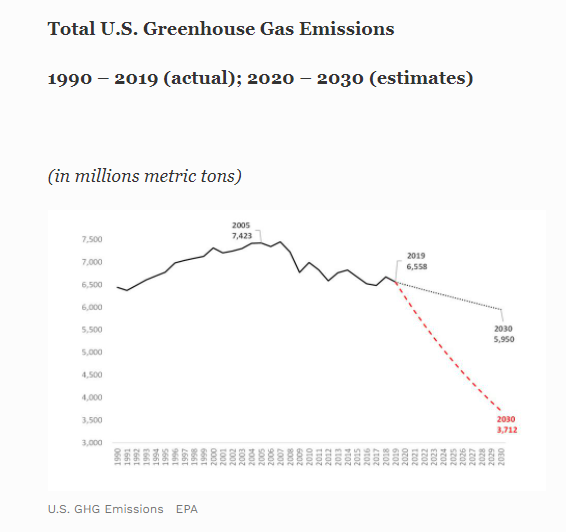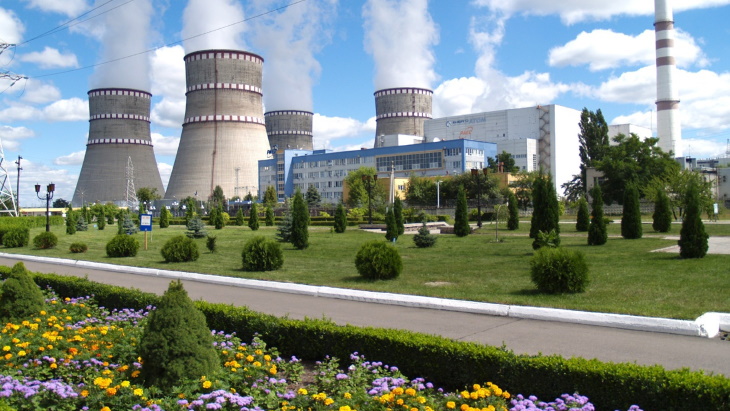
The four-unit Rivne plant (Image: Energoatom)
Westinghouse noted it will be the first time it delivers LCCS to support severe accident management at Russian-designed VVER-440 reactors. The systems will be manufactured by Westinghouse, using its patented solution specifically designed for the global VVER-440 fleet, then delivered to the Rivne units next year.
"The cooling systems will greatly improve safety margins at the site by ensuring stable heat removal and effective containment depressurisation in the case of an accident," Westinghouse said.
"This contract is part of our commitment to helping Ukraine secure a reliable, safe energy future," said Dan Sumner, president of Westinghouse Operating Plant Services. "Safety upgrades like the long-term containment cooling systems will improve the safety of Energoatom's VVER-440 reactors for decades to come."
Rivne 1 and 2 - which were commissioned in 1980 and 1981, respectively - are the only VVER-440 units in Ukraine. The country has a total of 13 VVER-1000 units, including Rivne 3 and 4, Khmelnitski 1 and 2, South Ukraine 1-3 and Zaporizhzhia 1-6. The VVER-1000 units were commissioned between 1982 and 2004.
Westinghouse said the LCCS contract "strengthens a longstanding strategic partnership between Westinghouse and Energoatom that includes supplying all VVER nuclear fuel for the country's operating reactor fleet and collaborating on the deployment of nine new AP1000 reactors in Ukraine".
Westinghouse has been supplying VVER-1000 fuel to Ukraine since 2005, when the first lead test assemblies were delivered to unit 3 of the South Ukraine nuclear power plant.
Diversifying VVER fuel supplies
Westinghouse's Swedish nuclear fuel manufacturing subsidiary, Westinghouse Electric Sweden AB, is leading the Accelerated Programme for Implementation of Secure VVER Fuel Supply (APIS). Launched in January this year, the programme aims to meet the urgent need of European countries operating such reactors to find an alternative source of fuel.
In recent years, especially since the war with Ukraine began, nuclear power operators in EU countries who had previously relied on Russian-supplied fuel have sought alternative suppliers.
The APIS programme is co-financed by the European Union, and is part of the EU's Horizon Europe programme for research and innovation. The APIS programme is expected to run for over three years.
APIS is structured into eleven work-packages with different focuses, including: completion of the VVER-440 fuel design for short term delivery; development of improved and advanced VVER-440 and VVER-1000 fuel designs; standardisation of the fuel licensing; completion of the re-instatement of fuel manufacturing capabilities; improved modeling and methods; analysis of fuel-related plant lifetime extension; and communication and project management.
The APIS consortium includes several utilities: CEZ of the Czech Republic; Energoatom of Ukraine; Fortum of Finland; MVM Paksi Atomeromu of Hungary; and Slovenske Elektrarne of Slovakia. Fuel manufacturers Westinghouse of Sweden and Enusa of Spain are also members. It also includes fuel engineering and research organisations: JRC-Joint Research Centre of the European Commission; State Scientific and Technical Center for Nuclear and Radiation Safety of Ukraine; UJV REZ of the Czech Republic; Uppsala University in Sweden; and Vuje AS of Slovakia.
"The APIS consortium will allow creating strong cooperation between countries with experience in adaptation of fuel type and countries starting their journey towards nuclear fuel diversification," Energoatom said. "Diversifying the sources of VVER fuel will be made possible by strengthening European capabilities in design, manufacturing, and supply, as well as by accelerating the process of capacity building".
There are currently 18 VVER-440 reactors in operation in the EU and Ukraine, as well as 17 VVER-1000 reactors.
"The APIS project is totally aligned with the collaboration fostered by the EU between suppliers and utilities to neutralise a negative impact on the supply of VVER fuel and limit dependence on current suppliers," said Westinghouse Nuclear Fuel President Tarik Choho. "Some countries have already embarked on this diversification path, demonstrating that alternatives in the VVER market are possible."
